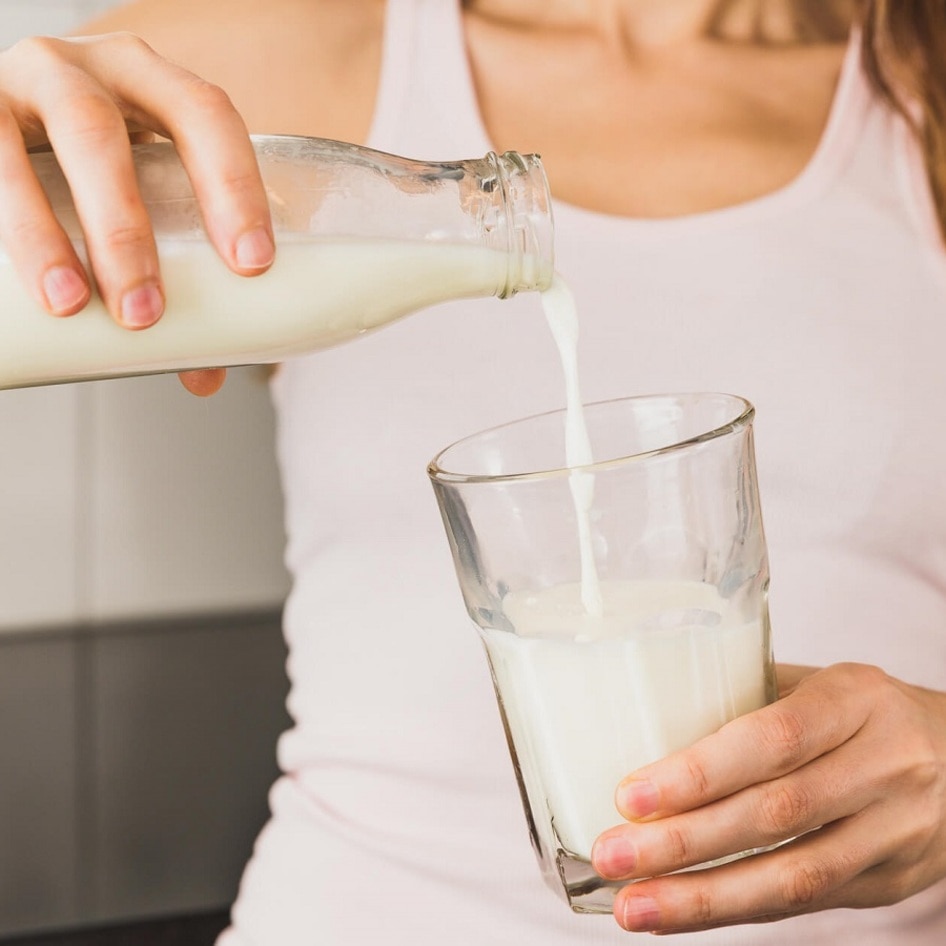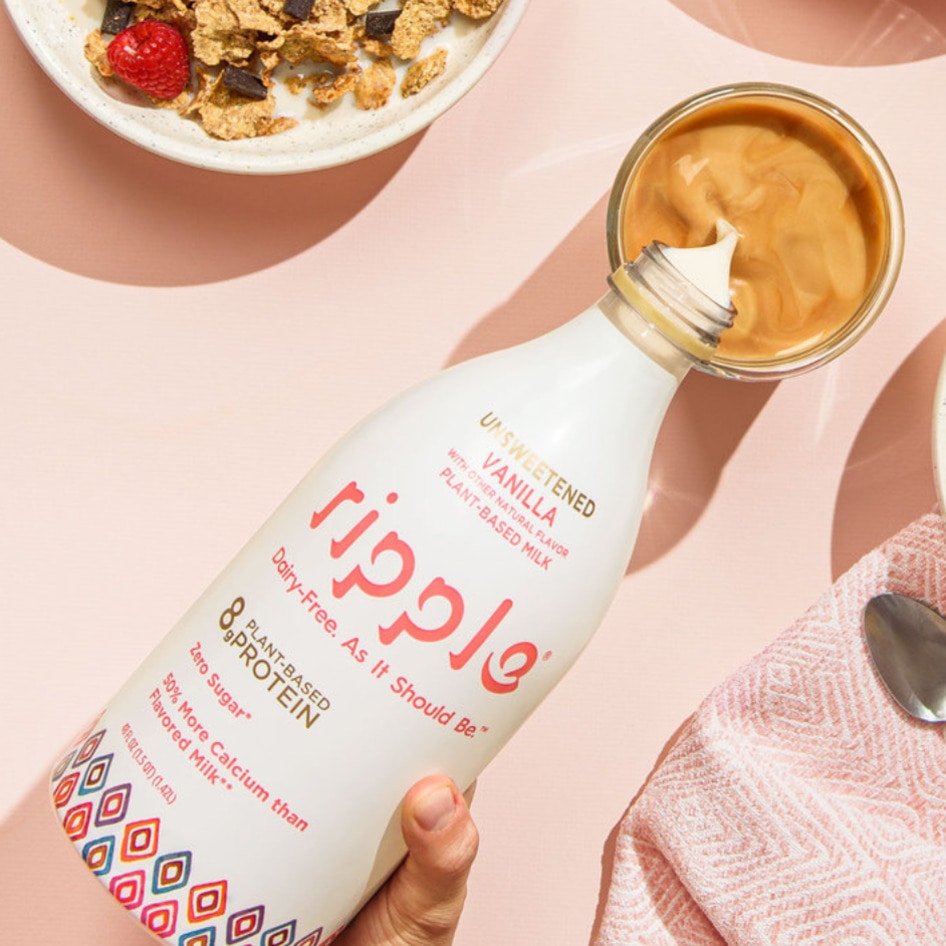Study with Dairy Ties Connects Vegan Milk to Stunted Growth
Renowned dietitian reveals five flaws of dairy-linked study.
June 11, 2017
Last week, Canadian researchers published a study in The American Journal of Clinical Nutrition entitled “Association between noncow milk beverage consumption and childhood height.” As a vegan mom and a registered dietitian, I was concerned about this study and how it might make parents worry that plant-based milks are unhealthy for their children. With this in mind, I decided to do some research. Quickly, I discovered many flaws with this study, and that (shocker!) the author has ties to the dairy industry. Sadly, these industry ties were not reported in the study’s press release or the ensuing media coverage. As an RD—and as a mom—I know that giving your family plant-based milks to drink can be part of a healthy diet, which is why I’ve decided to highlight some of the flaws in this study. Here are five of the largest issues not addressed in this research.
1. Maguire’s ties to the dairy industry
The study’s principal investigator, Jonathon Maguire, MD, is a pediatrician at St. Michael’s Hospital, and his paper is part of a research collaboration between St. Michael’s Hospital and The Hospital for Sick Children called TARGet Kids! According to the project’s website, “The aim of the TARGet Kids! registry is to link early life exposures to health problems including obesity, micronutrient deficiencies, and developmental problems.” The website also shows that TARGet Kids has received financial support from the dairy industry in the form of multi-year grants from the Danone Institute and the Dairy Farmers of Canada. Furthermore, Maguire was first author on another study funded by the Dairy Farmer’s of Canada investigating a low milk intake, vitamin D deficiency, and fracture risk in young children. Finally, Ars Technica has reported that Maguire was a member of the Dairy Farmer’s of Canada Expert Scientific Advisory Committee until 2016.
2. The authors grouped all non-cow milks together
Maguire explained how “two cups of cow’s milk contains 16 grams of protein, which is 100 percent of the daily protein requirement for a three-year-old child, according to the study. Two cups of almond milk beverage typically contains 4 grams of protein, which is only 25 percent of the daily protein requirement for a three-year-old, who may not be receiving sufficient protein from other dietary sources.” Although this calculation is correct, Maguire could have chosen to compare soy milk instead of almond milk. Fortified soy milk is the dairy alternative recommended in Canada’s Food Guide and the Dietary Guidelines for Americans because it has protein and calcium levels almost equivalent to cow’s milk.
3. What about protein?
Maguire said, “Height is an important indicator of children’s overall health and development. Cow’s milk has been a reliable source of dietary protein and fat for North American children, two essential nutrients to ensure proper growth in early childhood. But many parents are choosing non-cows’ milk for their children, which may have lower nutritional content.” Also, on its website, St. Michael’s Hospital states that “the study did not examine why children who drank non-cow’s milk were shorter on average than those who drank cow’s milk, however the authors hypothesize that children who drink non-cow’s milk may consume less dietary protein and fat than those who drink cow’s milk, resulting in reduced growth.” Unfortunately, this is an unsubstantiated hypothesis because the researchers did not measure protein or fat intake. From the results of this study, the impact of protein and fat intake on the children’s growth are impossible to determine. Children who drank non-dairy milk might have been consuming other rich protein sources from food such as lentils, beans, nuts, and seeds, while some of the children might have been eating meat, fish, eggs, and poultry. Or, they could have been consuming other dairy products, so making assumptions about diet quality is impossible. In fact, children who are consuming adequate calories are almost certainly meeting their protein and fat requirements through a varied diet.
4. Why are the cow-milk drinkers taller?
Along with protein and fat, cows’ milk also contains insulin-like growth factor-1 (IGF-1). This hormone helps cells to grow and divide, and therefore promotes growth and development in children. The IGF-1 found in cows is the same as that in humans, and in the paper published in The American Journal of Clinical Nutrition, Maguire and the other authors acknowledge the potential role of IGF-1 as factor in growth promotion. Boosting levels of IGF-1 is not necessarily desirable, however, as high levels of IGF-1 have been linked to increased risk of cancer. In fact, height is associated with modest decreases in the likelihood of healthy aging. The authors of a 2009 study, led by nutrition giant Walter Willett and published in the journal Cancer Epidemiology, Biomarkers & Prevention, also concluded that IGF-1—not protein or fat intake—was a likely factor in promoting growth in children consuming cows’ milk, and that this raises concerns about future cancer risk. Bottom line? We can say that the cows’ milk-drinkers were taller, but we don’t know for sure why they were taller.
5. Being taller doesn’t necessarily mean healthier
Our society believes that taller people as more capable, act as better leaders, and are more attractive. It seems, however, that being taller might not be a desirable characteristic in terms of our health, especially if it is promoted by increasing a hormone that might also cause an overgrowth of cancer cells. This research should not cause parents to worry about giving non-cows’ milk to their children. If anything, the information creates greater questions about the health of cows’ milk as a beverage for humans of any age.
Pamela Fergusson, RD PhD is a vegan dietitian in private practice in Toronto and a lecturer in the School of Nutrition, Ryerson.
JUMP TO ... Latest News | Recipes | Guides | Health | Shop







